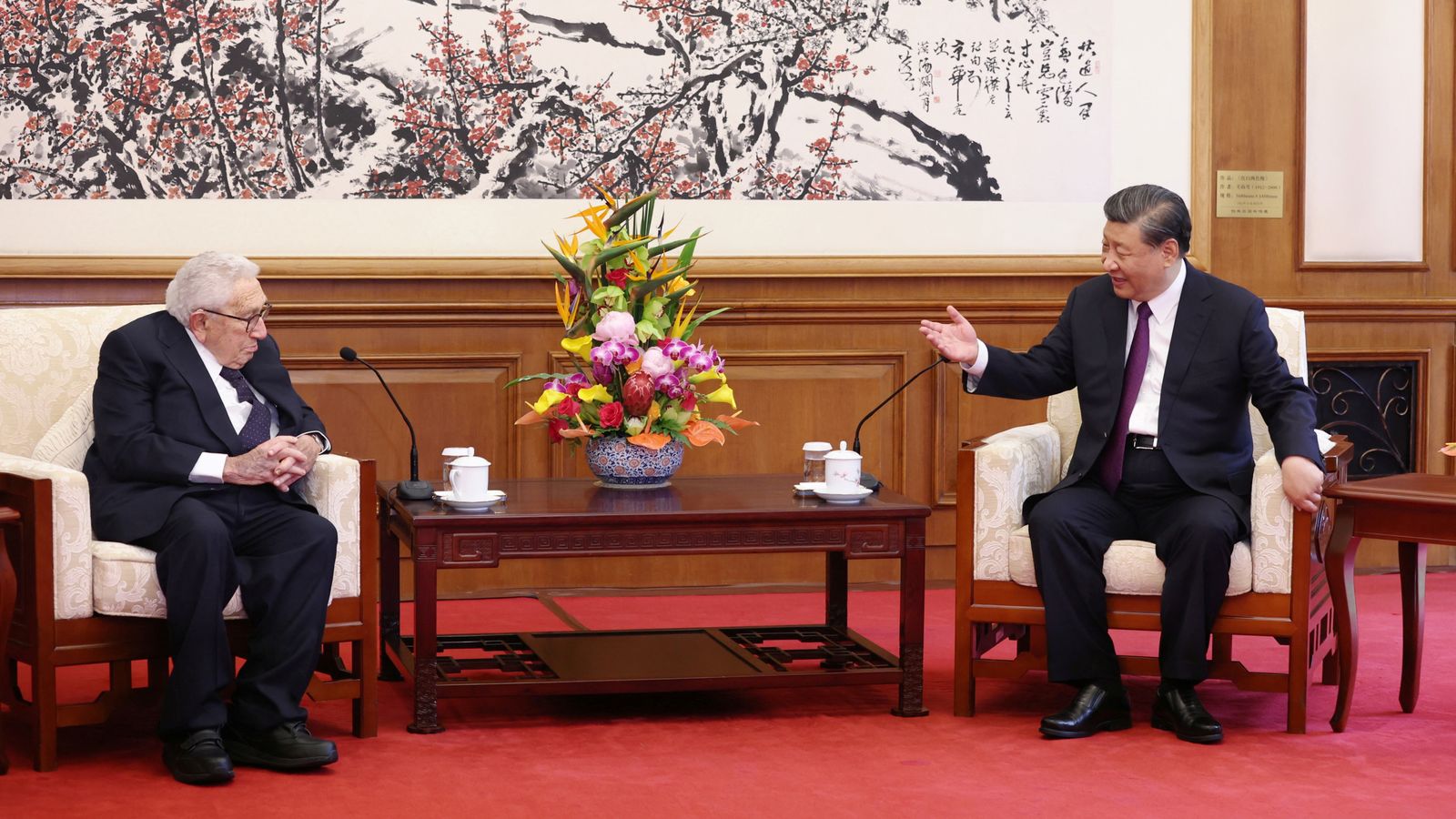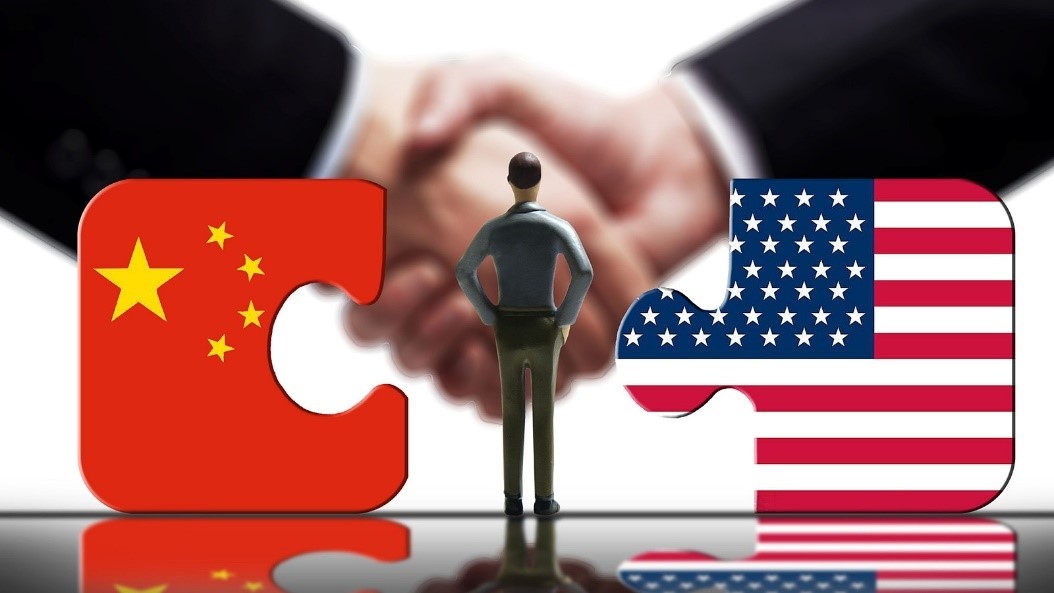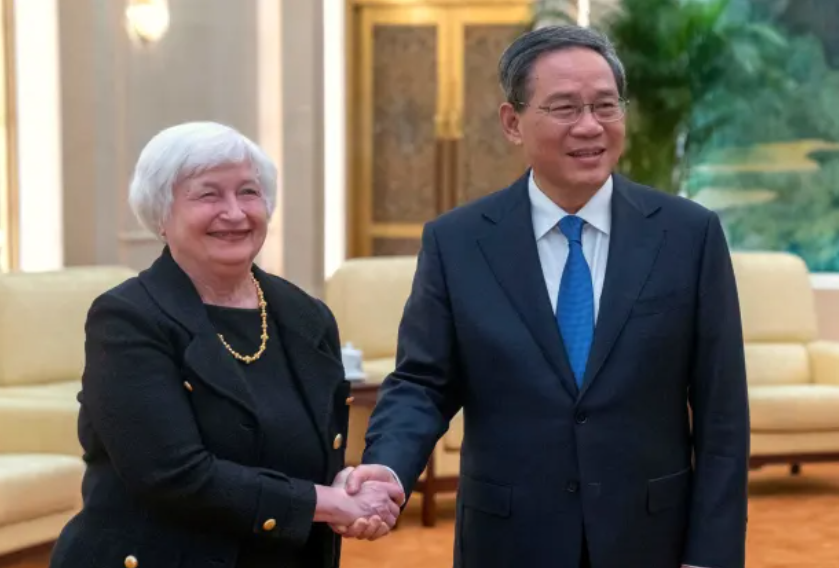
Sun Chenghao, Fellow, Center for International Security and Strategy of Tsinghua University; Munich Young Leader 2025
Jul 22, 2023
Tension between China and the U.S. is at a precarious point, the renowned diplomat noted, saying the trajectory of the relationship must be altered. In the short to medium term, there are still a significant number of opportunities.

Dong Chunling, Deputy Director, Office of the Center for the Study of a Holistic View of National Security, CICIR
Jul 21, 2023
Frequent high-level contacts with China may be making a tactical difference for the United States. Tensions have eased slightly. However, the U.S. continues to pursue its broader strategy of containment. As elections approach, the Biden administration has little room to maneuver.

Nathaniel Schochet, Analyst and CJPA Global Advisors
Earl Carr, Founder and Chief Executive Officer at CJPA Global Advisors
Jul 21, 2023
In a series of recent high-level communication between China and the U.S., Treasury Secretary Yellen completed an official visit to China earlier this month. While the trip might indicate that a process towards renewal has finally begun, and pave the way for future dialogue, there were no tangible or immediate outcomes.
Richard Weitz, Senior Fellow, Hudson Institute
Jul 21, 2023
Talks between executive officials of the U.S. and China have resumed, after a disastrous start to the year. However, the presence of dialogue alone is no proof that substantial changes are in the works, as substantial changes have not emerged from current meetings.
Zhong Yin, Research Professor, Research Institute of Global Chinese and Area Studies, Beijing Language and Culture University
Jul 19, 2023
U.S. Treasury Secretary Janet Yellen’s visit to China served as a reminder of the integral relationship that exists between the two countries. While the U.S. now says it merely seeks de-risking in its trade policies, it should be careful not to throw the baby out with the bathwater.
Digby James Wren, Special Senior Advisor, Royal Academy of Cambodia
Jul 12, 2023
Since the Trump administration launched its trade and tech war on China, no evidence whatsoever has been revealed by state-led investigations into US allegation
Earl Carr, Founder and Chief Executive Officer at CJPA Global Advisors
Nathaniel Schochet, Analyst and CJPA Global Advisors
Jul 11, 2023
Confrontations between the U.S. and China are being amplified by a lack of communication between the military leaders of both sides, even as officials from other national bureaus continue to meet. Without proper means to defuse situations, the risk for escalation runs even higher.
Yu Yongding, Former President, China Society of World Economics
Jul 05, 2023
Before Deng Xiaoping launched China’s reform and opening up, the People’s Republic was working to establish a self-sufficient economy. But after dec

Sajjad Ashraf, Former Adjunct Professor, National University of Singapore
Jul 04, 2023
Washington’s increased presence in the Asia-Pacific region, along with the polarization of America’s political system, are intensifying the challenge of reaching a breakthrough with China. And as tensions grow, particularly surrounding Taiwan, the U.S. must build on the momentum from Blinken’s visit and seek compromise with Beijing.
Back to Top

- China-US Focus builds trust and understanding between the U.S. and China through open dialogue among thought leaders.
- Our Offerings
- Topics
- Videos
- Podcasts
- Columnists
- Research Reports
- Focus Digest
- Stay Connected
-
Thanks for signing up!
- Get the latest stories from China-US Focus weekly.